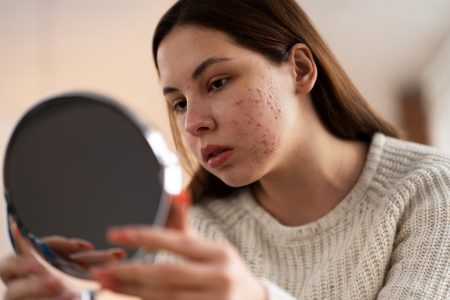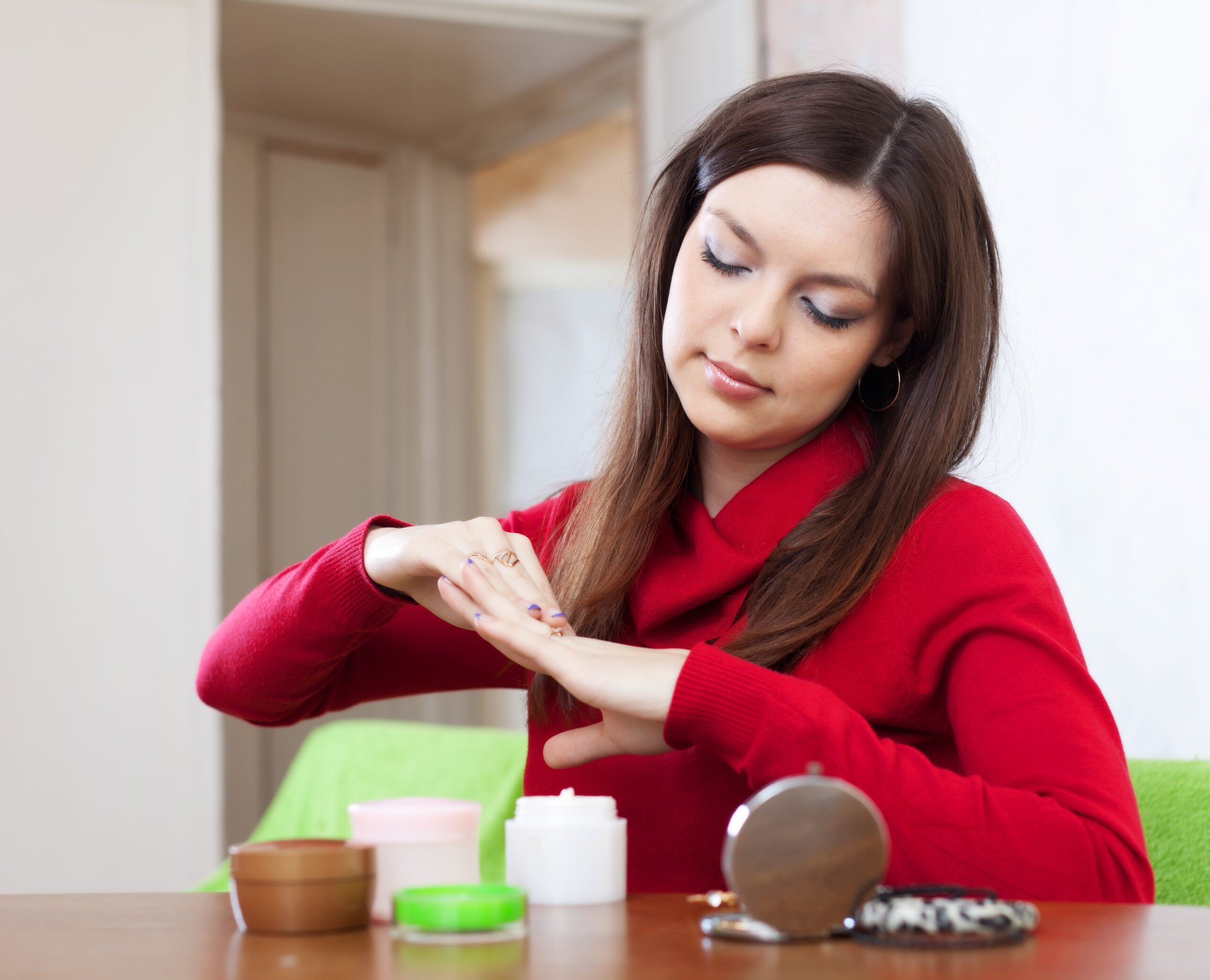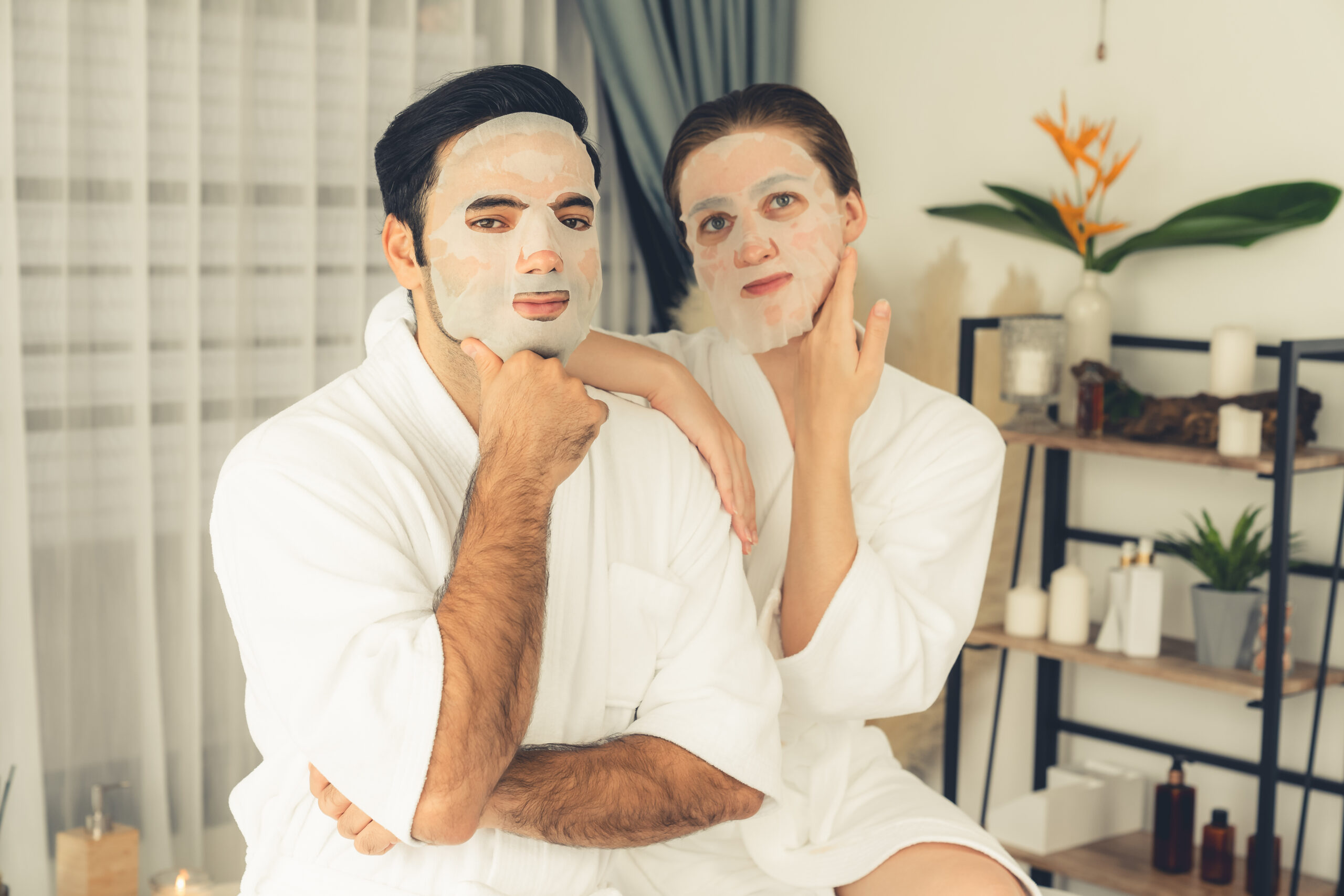

Introduction
Hormonal acne is more common than you might think and doesn’t just affect teenagers—it can persist or develop well into adulthood. Did you know that nearly 50% of adults aged 25 and older experience some form of acne, with a notable prevalence among women?Hormonal fluctuations, often tied to menstrual cycles, pregnancy, menopause, or stress, are major contributors to this skin condition
Moreover dietary habits can play a significant role.Studies have shown that consuming high-glycemic foods, sugary beverages, and dairy can exacerbate hormonal acne, as these foods influence insulin and androgen levels, which are closely linked to acne breakouts
Hormonal acne is a skin issue that affects many people, regardless of age. If you've noticed acne flare-ups around your jawline, chin, or cheeks, especially if you’re an adult, you might be experiencing hormonal acne. While this type of acne is often associated with puberty, it can persist well into adulthood. At Skinessence Skin Clinic, led by Dr. Prachi Srivasthva, we’re here to help you understand the causes, triggers, and effective solutions for managing hormonal acne.
Hormonal acne occurs due to fluctuations in your hormones, which affect your skin’s oil production. While most people experience it during puberty, it can continue into adulthood, particularly in women. It's characterized by:
The main culprit behind hormonal acne is a group of hormones called androgens. These hormones can enlarge oil glands and boost oil production, leading to clogged pores and acne. Everyone has androgens, but some people are more sensitive to them. As we age, hormone sensitivity can change, and hormonal acne may become more or less of a problem.
Other lifestyle factors, such as using harsh skincare products, poor diet, stress, and lack of sleep, can also trigger or worsen hormonal acne.
You might have thought that acne was just a teenage problem, but the reality is different. Hormonal acne can continue into your 20s, 30s, and even beyond. In fact, research shows that up to 50% of women in their 20s and 25% of women in their 40s still experience acne.
Hormonal changes related to menstruation, pregnancy, and menopause can also contribute to adult acne. And some women, especially those who have always had oily skin, may continue to experience acne even after menopause.
Managing hormonal acne often requires a combination of patience, the right treatments, and lifestyle adjustments. Here are some expert tips from Dr. Prachi Srivasthva at Skinessence Skin Clinic:
1. Simplify Your Skincare Routine
Sometimes less is more. Overcomplicating your skincare routine with multiple products can irritate your skin and worsen acne. Instead, focus on a simple regimen with a gentle cleanser, moisturizer, and sunscreen.
2. Start with One Treatment at a Time
Rather than trying multiple acne treatments at once, Dr. Srivasthva recommends starting with one gentle product, such as salicylic acid or benzoyl peroxide, and giving it time to show results. If you don’t see improvement after a few weeks, consult with a dermatologist for personalized advice.
3. Consult with a Dermatologist
If hormonal acne is affecting your quality of life or not responding to over-the-counter treatments, it’s time to seek professional help. Dr. Srivasthva and her team at Skinessence Skin Clinic can develop a tailored treatment plan that works for your specific needs. There are several options available, including topical treatments, oral medications, and advanced procedures.
4. Consider Hormonal Birth Control
For some women, hormonal birth control can help regulate hormone fluctuations that lead to acne. While it’s not the right solution for everyone, Dr. Srivasthva can help you determine whether it might be appropriate for you.
5. Lifestyle Adjustments
5. Lifestyle Adjustments
Diet, stress management, and sleep are all factors that can influence hormonal acne. Reducing your intake of refined sugars and alcohol, practicing relaxation techniques, and getting enough sleep can help keep your skin in check.
While lifestyle changes can help manage hormonal acne, for many, medications may still be necessary to clear stubborn breakouts. Topical treatments like retinoids or oral medications like spironolactone can be effective options, especially for persistent cases.
It's important to remember that hormonal acne is a common skin concern, and you're not alone. Learning to accept your skin and its imperfections can be empowering. At Skinessence Skin Clinic, we believe in fostering a positive mindset about your skin. Focus on the things you love about yourself, and remember that beauty comes in many forms. Your skin doesn’t have to be flawless to be beautiful.
Hormonal acne can be frustrating, but with the right care and expert guidance, it’s manageable. Whether you’re dealing with occasional breakouts or persistent cystic acne, Dr. Prachi Srivastava’s clinic in Panvel offers comprehensive solutions tailored to your needs. From customized skincare routines to advanced treatments, you’ll find everything you need to achieve clearer, healthier skin.
Take the first step toward confidence—schedule a consultation today and let Dr. Prachi help you reclaim your glow!




M D in Dermatology,Venerology and Leprosy
Best Skin Doctor in Panvel
